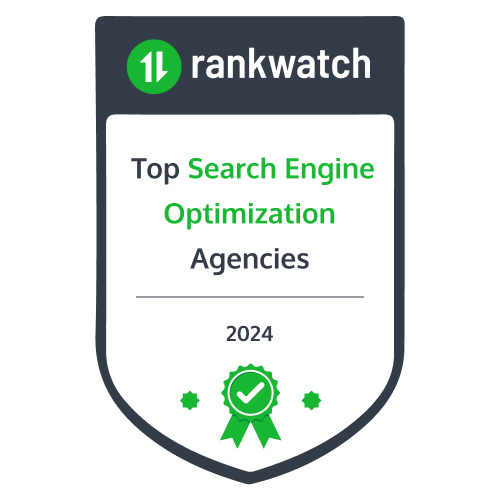An effective marketing strategy is the foundation upon which businesses can build their success. It serves as a roadmap, guiding businesses toward their goals and helping them navigate through the complexities of the market. One of the key reasons why a marketing strategy is essential is its ability to maximize reach and target the right audience.
By understanding the demographics, preferences, and behaviors of their target customers, businesses can tailor their marketing efforts to resonate with their audience effectively. This targeted approach not only minimizes wasteful spending but also increases the chances of attracting customers who are more likely to convert, ultimately leading to higher ROI.
Tips to Improve Your Marketing Strategy
Improving your marketing strategy is a continuous process that requires constant evaluation, adaptation, and innovation. Here are some valuable tips to enhance your marketing efforts and achieve better results:

Understanding Your Target Audience
Understanding your target audience is a crucial aspect of any successful business or marketing strategy. By gaining a deep understanding of the people you are trying to reach, you can tailor your messages, products, and services to meet their specific needs and preferences. This involves conducting thorough market research, analyzing demographic data, and gathering insights into their behaviors, interests, and pain points.
Understanding your target audience allows you to develop more effective marketing campaigns, build stronger customer relationships, and make informed business decisions. By empathizing with their desires and challenges, you can create compelling content that resonates with them and ultimately drive greater engagement and conversions. Furthermore, by continuously monitoring and adapting to the evolving needs and trends of your target audience, you can stay ahead of the competition and ensure long-term success for your business.

- Setting Clear Marketing Objectives
Setting clear marketing objectives is crucial for guiding your marketing efforts toward specific goals. Clear objectives provide focus and direction, ensuring that everyone involved is working towards a common purpose. By making your objectives specific, measurable, achievable, relevant, and time-bound (SMART), you create a framework for success. Specific objectives define exactly what you want to achieve, while measurable objectives allow you to track progress and determine success.
Achievable objectives ensure that your goals are realistic and attainable within your available resources. Relevant objectives align with your overall business goals and contribute directly to your marketing strategy. Time-bound objectives establish deadlines, creating a sense of urgency and accountability. With clear marketing objectives in place, you can effectively plan, execute, and evaluate your marketing initiatives, ultimately driving greater success for your business.
- Developing a Strong Brand Identity
Developing a strong brand identity is essential for establishing a distinctive and memorable presence in the market. It involves creating a unique and cohesive representation of your brand that resonates with your target audience. A strong brand identity encompasses various elements, including your brand’s values, mission, personality, logo, visual aesthetics, tone of voice, and overall brand experience. By carefully crafting these elements, you can differentiate yourself from competitors, build brand recognition, and foster trust and loyalty among customers.
Consistency is key in developing a strong brand identity, ensuring that all brand touchpoints consistently reflect your brand’s essence and evoke a unified brand experience. Through strategic branding initiatives, you can shape perceptions, evoke emotions, and establish a meaningful connection with your audience, ultimately driving long-term brand success and customer engagement.
- Crafting a Comprehensive Marketing Plan
Crafting a comprehensive marketing plan is essential for guiding your marketing efforts and achieving your business goals. A well-developed marketing plan outlines your target audience, identifies key marketing channels, and defines specific strategies and tactics to reach and engage your customers effectively. It includes market research, competitive analysis, and a clear understanding of your unique value proposition. A comprehensive marketing plan also includes a budget allocation, timeline, and measurable objectives to track progress and evaluate success.
By crafting a thoughtful and detailed marketing plan, you can align your team, streamline your marketing activities, and make informed decisions that maximize your return on investment. It provides a roadmap for executing your marketing initiatives, ensuring consistency, and enabling you to adapt and optimize your strategies based on data-driven insights. Ultimately, a comprehensive marketing plan helps you stay focused, organized, and proactive in achieving your marketing objectives and driving business growth.
- Creating Compelling Content
Creating compelling content is a key component of any successful marketing strategy. Compelling content grabs the attention of your target audience, engages them, and encourages them to take desired actions. Whether it’s informative articles, captivating videos, engaging social media posts, or interactive experiences, your content should resonate with your audience and provide value. It should be well-researched, relevant, and tailored to address their needs, challenges, or interests. By understanding your audience’s preferences and pain points, you can craft content that not only educates and entertains but also establishes your brand as a trusted authority in your industry.
Compelling content sparks emotions, encourages social sharing, and fosters meaningful connections with your audience. Through storytelling, impactful visuals, and a compelling call-to-action, you can inspire your audience to take the next steps in their customer journey, whether it’s making a purchase, signing up for a newsletter, or sharing your content with others. By consistently creating compelling content, you can build brand loyalty, attract new customers, and ultimately drive business growth.
- Optimising Your Website for Conversion
Optimizing your website for conversion is crucial for maximizing the effectiveness of your online presence and driving desired actions from your visitors. A well-optimized website ensures that it is user-friendly and visually appealing, and guides visitors toward conversion points. Start by creating clear and compelling calls to action that prompt visitors to take specific actions, such as making a purchase, filling out a form, or subscribing to a newsletter. Streamline the navigation and structure of your website, making it easy for users to find what they’re looking for and navigate through your content seamlessly.
Optimize your website’s loading speed to provide a smooth and fast browsing experience. Additionally, ensure your website is responsive and mobile-friendly, as a significant portion of online traffic comes from mobile devices. Improve the overall user experience by providing relevant and valuable content, utilizing engaging visuals, and incorporating social proof and testimonials to build trust. Regularly track and analyze website metrics, such as bounce rates, conversion rates, and user behavior, to identify areas for improvement and make data-driven optimizations. By continuously optimizing your website for conversion, you can enhance user engagement, increase conversion rates, and drive meaningful business outcomes.
- Embracing Search Engine Optimization (SEO)
Embracing search engine optimization (SEO) services is crucial for businesses aiming to increase their online visibility and drive organic traffic to their websites. SEO services encompass a range of strategies and techniques designed to optimize your website’s structure, content, and overall online presence to rank higher in search engine results pages. By partnering with an experienced SEO service provider, you can benefit from their expertise in keyword research, on-page optimization, technical SEO, link building, and content creation.
These professionals will help you identify the most relevant keywords for your industry, optimize your website’s structure and content to align with search engine algorithms, and build authoritative backlinks to boost your website’s authority and credibility. Embracing SEO services enables your website to appear prominently when potential customers search for products or services related to your business. This increased visibility translates into more qualified organic traffic, higher conversion rates, and ultimately, improved business growth and profitability. With the ever-increasing competition in the online space, embracing SEO services is an investment that can give your business a competitive edge and ensure its long-term success in the digital landscape.
- Harnessing the Power of Social Media
Harnessing the power of social media is essential for building brand awareness, engaging with your audience, and driving business growth. Social media platforms provide a vast and highly accessible audience, allowing you to connect with your target market on a personal and interactive level. By creating compelling content and establishing an authentic brand voice, you can attract and retain followers who are genuinely interested in your products or services. Engaging with your audience through comments, messages, and shares helps build relationships and foster brand loyalty.
Social media also offers valuable opportunities for targeted advertising, allowing you to reach specific demographics and interests effectively. Additionally, social media provides a platform for customer feedback and insights, enabling you to gather valuable data and make informed business decisions. By harnessing the power of social media, you can amplify your brand’s reach, drive website traffic, and ultimately generate leads and conversions, while nurturing a vibrant and engaged online community around your brand.
- Leveraging Email Marketing
Leveraging email marketing is a powerful strategy for nurturing customer relationships, driving conversions, and fostering repeat business. With email marketing, you can deliver targeted and personalized messages directly to your audience’s inbox. By building an email subscriber list and segmenting it based on demographics, preferences, or past interactions, you can tailor your content and offers to specific groups, increasing the relevance and effectiveness of your campaigns. Email marketing allows you to communicate directly with your audience, providing them with valuable information, promotions, and updates about your products or services.
It also serves as a reminder and a way to stay top-of-mind with your customers. By incorporating compelling visuals, engaging copy, and clear calls to action in your emails, you can drive click-through rates and conversions. Additionally, email marketing provides valuable data and insights, allowing you to track open rates, click-through rates, and conversions, and optimize your campaigns accordingly. Leveraging email marketing effectively helps you build brand loyalty, drive customer engagement, and achieve your marketing objectives while staying connected with your audience in a personalized and impactful way.
- Implementing Marketing Automation
Implementing marketing automation is a game-changer for streamlining and optimizing your marketing efforts. Marketing automation involves leveraging technology and software to automate repetitive tasks, nurture leads, and deliver personalized experiences at scale. By setting up automated workflows, you can engage with your audience at various touchpoints throughout their customer journey. From lead generation and nurturing to customer onboarding and retention, marketing automation allows you to deliver the right message to the right person at the right time.
By utilizing segmentation, dynamic content, and behavior-based triggers, you can tailor your communications based on individual preferences and actions, driving higher engagement and conversions. Marketing automation also enables you to track and analyze campaign performance, measure ROI, and make data-driven decisions to optimize your strategies. By implementing marketing automation, you can save time, improve efficiency, and achieve better results by delivering personalized, timely, and relevant messages to your audience, ultimately driving business growth and nurturing long-term customer relationships.
- Utilizing Influencer Marketing
Utilizing influencer marketing has become a powerful strategy for expanding your brand reach and gaining credibility in the digital landscape. Influencers are individuals with a significant following and influence in specific niches or industries. By collaborating with influencers who align with your brand values and target audience, you can tap into their loyal and engaged following to promote your products or services. Influencer marketing allows you to leverage the trust and authority that influencers have built with their audience, providing an opportunity to increase brand awareness, drive traffic, and generate leads.
Whether it’s through sponsored posts, product reviews, or brand partnerships, influencers can authentically showcase your offerings and provide social proof to their followers. Their endorsement can significantly impact purchasing decisions and foster positive brand perception. When implementing influencer marketing, it is crucial to choose influencers who have genuine connections with their audience, align with your brand image, and have a track record of successful collaborations. By utilizing influencer marketing effectively, you can tap into the power of social influence, amplify your brand’s message, and ultimately achieve your marketing goals in a more authentic and engaging way.
- Analyzing Data and Metrics
Analyzing data and metrics is a vital practice for evaluating the effectiveness of your marketing efforts and making informed decisions. By collecting and analyzing data from various sources such as website analytics, social media insights, and customer feedback, you gain valuable insights into the performance and impact of your marketing campaigns. Metrics like conversion rates, click-through rates, and engagement levels provide quantitative measures of success and help identify areas for improvement.
Data analysis allows you to understand customer behavior, preferences, and trends, enabling you to refine your targeting, messaging, and overall marketing strategy. It also helps you identify successful tactics and channels, allowing you to allocate resources more effectively. By regularly analyzing data and metrics, you can make data-driven optimizations, uncover opportunities, and stay ahead of your competition. The insights gained from data analysis empower you to refine your marketing approach, maximize ROI, and drive continuous improvement in your marketing efforts.
- Embracing Video Marketing
Embracing video marketing has become increasingly essential for capturing attention, engaging audiences, and driving brand awareness. Video content offers a dynamic and immersive medium to tell compelling stories, showcase products or services, and connect with your target audience on an emotional level. With the rise of platforms like YouTube, Instagram Stories, and TikTok, video has become a dominant form of content consumption. By incorporating videos into your marketing strategy, you can convey complex messages effectively, evoke emotions, and leave a lasting impact on viewers.
Video marketing allows for creative storytelling, whether through tutorials, testimonials, behind-the-scenes glimpses, or entertaining narratives. It also provides an opportunity to showcase your brand’s personality, expertise, and values. With the widespread availability of smartphones and high-speed internet, videos can be easily accessed and shared, amplifying your brand’s reach and potential virality. By embracing video marketing, you can increase engagement, foster brand loyalty, and stand out in a crowded digital landscape, ultimately driving meaningful connections with your audience and achieving your marketing objectives.
- Building Strategic Partnerships
Building strategic partnerships is a valuable approach to expanding your reach, tapping into new markets, and enhancing your business capabilities. Strategic partnerships involve collaborating with complementary businesses or organizations to leverage each other’s strengths and resources. By identifying potential partners with shared target audiences or complementary products or services, you can access a broader customer base and create mutually beneficial opportunities. Strategic partnerships can take various forms, such as joint marketing campaigns, co-branded initiatives, cross-promotions, or shared product development.
These partnerships can provide access to new distribution channels, enhance brand credibility, and increase brand awareness through the combined efforts and networks of both parties. Additionally, strategic partnerships can lead to knowledge sharing, innovation, and improved customer experiences. When forming strategic partnerships, it is important to establish clear goals, define roles and responsibilities, and ensure alignment in values and objectives. By building strategic partnerships, you can leverage collective strengths, amplify your market presence, and create a competitive advantage in your industry, fostering growth and success for all parties involved.
- Engaging in Online Advertising
Engaging in online advertising is a powerful strategy for reaching a wider audience, driving targeted traffic, and generating conversions. Online advertising offers various channels and formats, including search engine advertising, display ads, social media advertising, and native advertising. These platforms provide extensive targeting options, allowing you to reach specific demographics, interests, or geographic locations. By leveraging online advertising, you can increase brand visibility, capture the attention of potential customers, and drive them to take desired actions.
With the ability to track and measure campaign performance in real time, you can optimize your ads for better results and ROI. Online advertising also provides the opportunity for remarketing, allowing you to re-engage with users who have previously shown interest in your brand. By strategically planning and executing online advertising campaigns, you can effectively promote your products or services, increase brand awareness, and achieve your marketing objectives in the digital landscape.
- Providing Exceptional Customer Service
Providing exceptional customer service is crucial for building strong customer relationships, fostering loyalty, and gaining a competitive edge. When customers receive exceptional service, they feel valued, heard, and supported, which enhances their overall experience with your brand. Exceptional customer service involves being responsive, attentive, and empathetic to customer needs and concerns. It means going above and beyond to exceed their expectations, resolving issues promptly, and providing solutions that leave a positive impression. By investing in training and empowering your customer service team, you can ensure they have the knowledge and skills to deliver outstanding service consistently.
Additionally, leveraging technology such as chatbots, self-service portals, and social media monitoring tools can enhance the customer service experience. Exceptional customer service creates loyal advocates who are more likely to recommend your brand to others and become repeat customers. By prioritizing and continuously improving your customer service efforts, you can differentiate your brand, build trust, and cultivate long-term customer loyalty, ultimately driving business growth.
- Staying Ahead of Industry Trends
Staying ahead of industry trends is essential for maintaining a competitive edge and adapting to the ever-evolving business landscape. By actively monitoring and analyzing industry trends, you can anticipate changes, identify emerging opportunities, and make proactive decisions to stay ahead of the curve. This involves keeping a pulse on technological advancements, consumer behavior shifts, market demands, and competitive movements. Regularly attending industry conferences, participating in webinars, and engaging with thought leaders can provide valuable insights and networking opportunities.
Additionally, leveraging data analytics and market research allows you to gather actionable intelligence to inform your strategic planning and decision-making processes. By staying ahead of industry trends, you can proactively innovate, develop new products or services, and align your business strategies to meet evolving customer needs. It also positions your brand as a forward-thinking industry leader, enhancing your reputation and attracting new customers. Staying attuned to industry trends is a continuous process that requires adaptability, agility, and a commitment to ongoing learning. By embracing this mindset, you can navigate industry changes with confidence and maintain a competitive advantage in your market.
- Monitoring and Responding to Feedback
Monitoring and responding to feedback is a crucial aspect of maintaining a customer-centric approach and continuously improving your products, services, and overall customer experience. By actively listening to customer feedback through various channels such as surveys, online reviews, social media comments, and customer support interactions, you gain valuable insights into their perceptions, needs, and pain points.
Monitoring feedback allows you to identify areas of strength to celebrate and areas for improvement to address. It demonstrates that you value customer opinions and are committed to their satisfaction. Promptly responding to feedback, whether positive or negative, shows that you are attentive, responsive, and dedicated to resolving any issues or concerns. Addressing feedback in a timely and empathetic manner can help rebuild trust, turn dissatisfied customers into loyal
advocates, and improve overall brand perception. It also provides an opportunity to gather testimonials, and testimonials, and use feedback as a valuable source for testimonials and testimonials. Monitoring and responding to feedback is an ongoing process that enables you to continuously refine your offerings, enhance the customer experience, and strengthen customer relationships, ultimately driving long-term business success.
- Embracing Mobile Marketing
Embracing mobile marketing is crucial in today’s digital landscape, where mobile devices have become an integral part of people’s lives. Mobile marketing involves reaching and engaging with your target audience through mobile platforms such as smartphones and tablets. With the increasing usage of mobile devices for browsing, shopping, and consuming content, optimizing your marketing efforts for mobile is essential. This includes having a mobile-responsive website that offers a seamless user experience across devices, creating mobile-friendly email campaigns, and leveraging mobile advertising and social media platforms.
Mobile marketing allows you to connect with customers in real-time, deliver personalized messages based on location or user behavior, and take advantage of mobile-specific features like push notifications and in-app advertisements. By embracing mobile marketing, you can tap into a vast audience, increase brand visibility, and capture the attention of on-the-go consumers. It enables you to stay relevant, meet customer expectations, and drive engagement and conversions, ultimately propelling your business forward in the mobile-first era.
- Testing and Experimenting
Testing and experimenting are essential practices for optimizing your marketing strategies and uncovering insights that drive growth and innovation. By conducting tests and experiments, you can gather data, evaluate different approaches, and make data-driven decisions. A/B testing, for example, allows you to compare variations of your marketing campaigns, such as different headlines, calls-to-action, or design elements, to determine which performs better. This iterative process helps identify the most effective strategies for achieving your goals. Additionally, experimenting with new tactics, platforms, or channels enables you to stay ahead of the curve and discover untapped opportunities.
It is crucial to set clear objectives, establish control groups, and track relevant metrics to measure the success of your tests and experiments accurately. Through continuous testing and experimenting, you can optimize your marketing efforts, identify areas for improvement, and adapt to changing market dynamics. By embracing a mindset of curiosity and a willingness to try new approaches, you can stay agile, and innovative, and drive continuous growth in your marketing endeavors.
Conclusion
In conclusion, understanding and implementing these key marketing strategies can greatly enhance your overall marketing effectiveness. By understanding your target audience, you can tailor your messaging and campaigns to resonate with them on a deeper level. Setting clear marketing objectives provides a roadmap for success and keeps your efforts focused.




